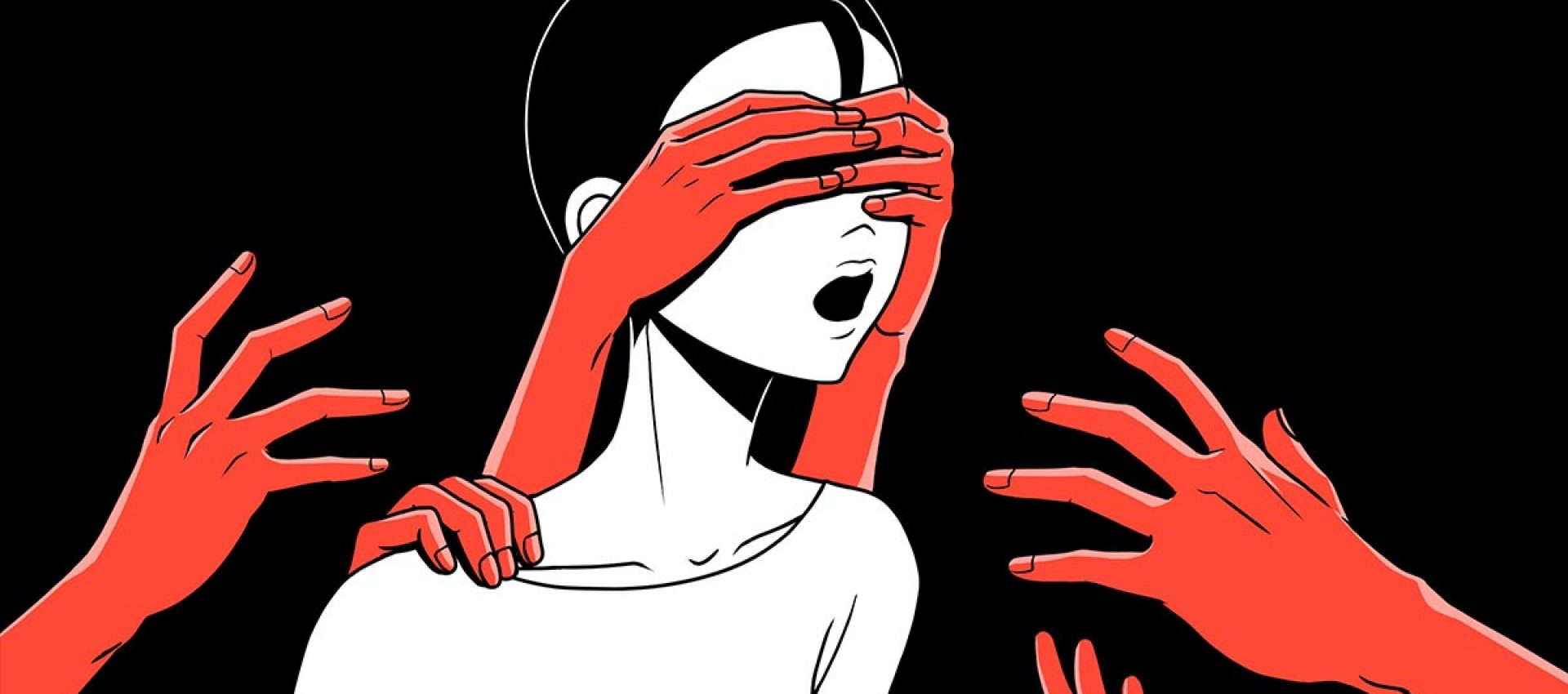How Not To Be Miserable
Part 1 of 2

By Dr. Robert Leichtman
Thriving in an imperfect world can be difficult. There are many events and situations that can irritate us such as the obvious faults in human nature and failures of society. Much instability and uncertainty surround us. Being discouraged and anxious almost seems to be the appropriate mood to have.
Yet there are many who thrive in these conditions even as others live in constant stress. They are able to act as friends and mentors to us in this sometimes, crazy world. These are the people who demonstrate that it is possible to cope with uncertainty, disappointment, and fear without becoming a cynic or a recluse. They reveal that we can still find peace and contentment in this flawed world without denying reality.
The problem is, we have to work at finding this joy, peace, and satisfaction. It does not come automatically to any of us. Unless we act with some degree of optimism, the natural pessimism and fears of our human nature are likely to have excessive influence on how we think and feel.
It takes time and many seasons of living to appreciate that each of us have abundant potentials to be peaceful as well as upset, happy as well as sad, and confident as well as anxious. If we allow our natural emotional reactions to control our attention, we are likely to experience more disappointment than excitement, and more annoyance than contentment.
Eventually, we learn that our life experiences will always be a mixture of many ordinary events plus a some good and some very annoying ones. We just have to learn how to be skillful in sorting out the high and low moments of our life. Our objective must be to derive greater nourishment and strength from our good experiences and less frustration from our irritating ones. Unless we learn how to do this consistently, we risk slipping into chronic disappointment and resentment.
Unfortunately, there are many who become discouraged early in their life. The distress they experience is enough to make them commit to spending their time avoiding everything that upsets them—even if this causes them to neglect good opportunities. Unless they are very careful, this decision can put then on the path to using their creative resources to making themselves more miserable than less.
Here is how they do it. They commit themselves to these rules of engagement.
- I will concentrate my attention on what is wrong or missing in my life because this annoys me more than anything else. I will pay little attention to my strengths and talents, but if I do, I will consider them unremarkable.
- I will identify with my worst experiences of failure and loss and assume these low points in my life permanently set the tone and limits for all subsequent experiences. And because I might forget these horrible events, I will frequently review and relive highlights of them.
- I often seek vengeance against my enemies. If I ever let go of my grief or resentment, it will mean justice may never occur for those who harmed me. I must act as if my well-being depends on attacking anyone or anything that harms me.
- Suspicion and distrust are necessary attitudes. Except for a few friends, most people have to prove themselves as friendly and trustworthy before I can allow them to be close to me.
- I must never forget that our country is dominated by corrupt people who always act in their own interest. They make all the rules and set the standards. They don’t care about us little people.
- Because of all of this, my difficulties and problems are rarely my own fault. I am forced to live within a corrupt society and system governed by corrupt people. I am continuously victimized by them.
- My cynicism is essential to survive in this hostile culture. My anger is necessary to keep me strong. My distrust in others is essential for my survival. Depression and anxiety are healthy attitudes to have in this sick society.
This is how we can make ourselves totally and continually miserable. These are the beliefs and habits that easily convert an ordinary life into one of constant irritation, disappointment, and alienation.
Unfortunately, when the process is described in this manner, most are unable to admit that these poisonous habits are more than a rarity in their life. It takes great personal integrity to recognize that many of these beliefs inhabit our thinking and behavior.

What we can do
There are several keys to turning around these habits. First, we need to have sufficient self-discipline to perform two important tasks. First is to control our focus of attention, and second, we need to be able to recognize what is our most important concern in each moment of our life.
It is amazing how so many people are caught up in trivial matters and allow distractions to consume their attention. Or they seem to major in minor issues and neglect much that is significant to their well-being. Often, it is the latest fad in mass consciousness that consumes far too much attention.
If we allow ourselves to be directed by our emotional reactions, we will likely be captured by our frustrations and dislikes. While some resist these tendencies, most do not. They begin their workday with a mindfulness of the necessary but annoying preparations for the day and the fact they must interact with unpleasant people and duties later in the day. The busyness of the day usually keeps them focused on their duties, but every nasty word and every irritating event is recorded and tucked away in the place where these annoyances are stored.
Although they may not recall these unpleasant events, they can become a burden even when they were far outnumbered by the positive experiences. Our subconscious has a way of giving about ten times more weight to negative events than the positive ones. Unless we take steps to neutralize this tendency, we will be overwhelmed with our negative experiences.
Many people choose to do what is easy and avoid anything that might be irritating. When this occurs, it means our natural tendencies of pessimism and disappointment are elevated to search for and reject anything that leads to unpleasantness. Without being conscious of these tendencies, they gradually slip into a mindset that is incredibly efficient at making us totally miserable.
Avoiding what might upset us may seem logical, but this choice neglects the fact that the joys and contentment of living do not automatically come to us. We have to look for them and embrace them with our grateful attention when they are found. Then we need to contribute more effort to add to them. Without this active pursuit we are likely to be left behind while the world moves on without us.
There is an additional point to consider about this search. We cannot find joy or contentment when we are filled with anger, despair, or fear. We will not find or make friends while we are hostile and distrusting. We will not be able to experience tranquility while we are outraged about what distresses us. We need to be aware of how often we repel good opportunities and learn to reform these habits.
How we can turn around these habits?
Perhaps it will be useful to point out the basic problem behind the problem of these clusters of misery-making habits. This problem is the tendency to allow our emotions to make our decisions.
For instance, many make the mistake of assuming whatever hurts or annoys is proof that this situation or idea is totally bad. But evaluating everything on that basis of whether it makes us feel good or bad is not a reliable standard. Just ask the average person addicted to drugs or alcohol if their feelings and desires lead them to the best choices. Or simply recall those people you know who love to gossip and reveal the latest dirt on others just so they can feel morally superior. Or think of those who love to criticize others in order to boost their self-esteem. All of these use the standard of “feeling good or bad” to judge others, their choices, and their behavior in general.
What we need to consider is: How do we want to be judged? Are we just fodder to be figuratively chewed over in order to boost the self-esteem of someone? Don’t we consider our hard-won strengths, skills, and knowledge more important that the casual contempt from others? Surely, the worth of our self, our achievements, and values represent the truth about us far more than some minor fault that others find to criticize.
Ultimately, we need to give attention to what we decide is most important about our self, our experiences, and our life. Is it how we feel that is most important? Or is it our ability to take care of our needs and enjoy our contribution to life? Yes, we suffer certain losses and indignities, but shall our disappointment about these events be the great theme and core of our life? Or will it be our joy and contentment about our victories, accomplishments, and the strengths and skills we use to achieve them?
Test ideas and policies
Ultimately, we need to make our own evaluations of the basic worth of ourselves and society. Our human nature will tend to resist this effort by its strong desire to be approved by our peers. We have to be careful about this urge, because large groups of people can be wrong, neurotic, and prejudiced. They can readily mislead us.
Of course, in time, the value of ideas and policies will become obvious. If we keep looking for the long-term outcomes and results when key ideas or policies are applied, then we will know what to trust. At least this basis for judgment will be better than the flippant critique of someone who instantly dislikes us the first time we meet.
Just remember, fools continue to be foolish because they close their eyes and minds to reality. Fanatics have no trouble ignoring facts and massive evidence of corruption and failure. Strong egotists and elitists are so invested in their own ideas and beliefs that they blind themselves to anything else. No one is more certain than the person who is drunk on their conviction of being right.
But no one has an exclusive command of the truth. While the truth is real and obvious, if you look for it honestly, it does not march up to you and hit you in the face. We need to search for it as it is revealed in what happens after we use ideas, policies, or methods. We can test ideas and policies this way, and then we can discern the value of these ideas or the lack of it.
Conclusion
We need to be concerned about what is most important to us from moment to moment instead of what is emotionally provocative. This will help us to avoid distractions that maybe interesting but shallow and meaningless in the long run. As we do this, we are learning to override our emotional concerns to do what is right.
This is what allows us to focus on what supports our best interests. This is what keeps focused on the things that preserve a positive mood and a mindfulness of our most important goals. This is the discipline that keep us aspiring to honor the best in ourselves.
Think on these things

How Not To Make Ourselves Miserable: Part 2
In Part 2, we explore how to avoid being caught up in the despair and helplessness in mass consciousness.
